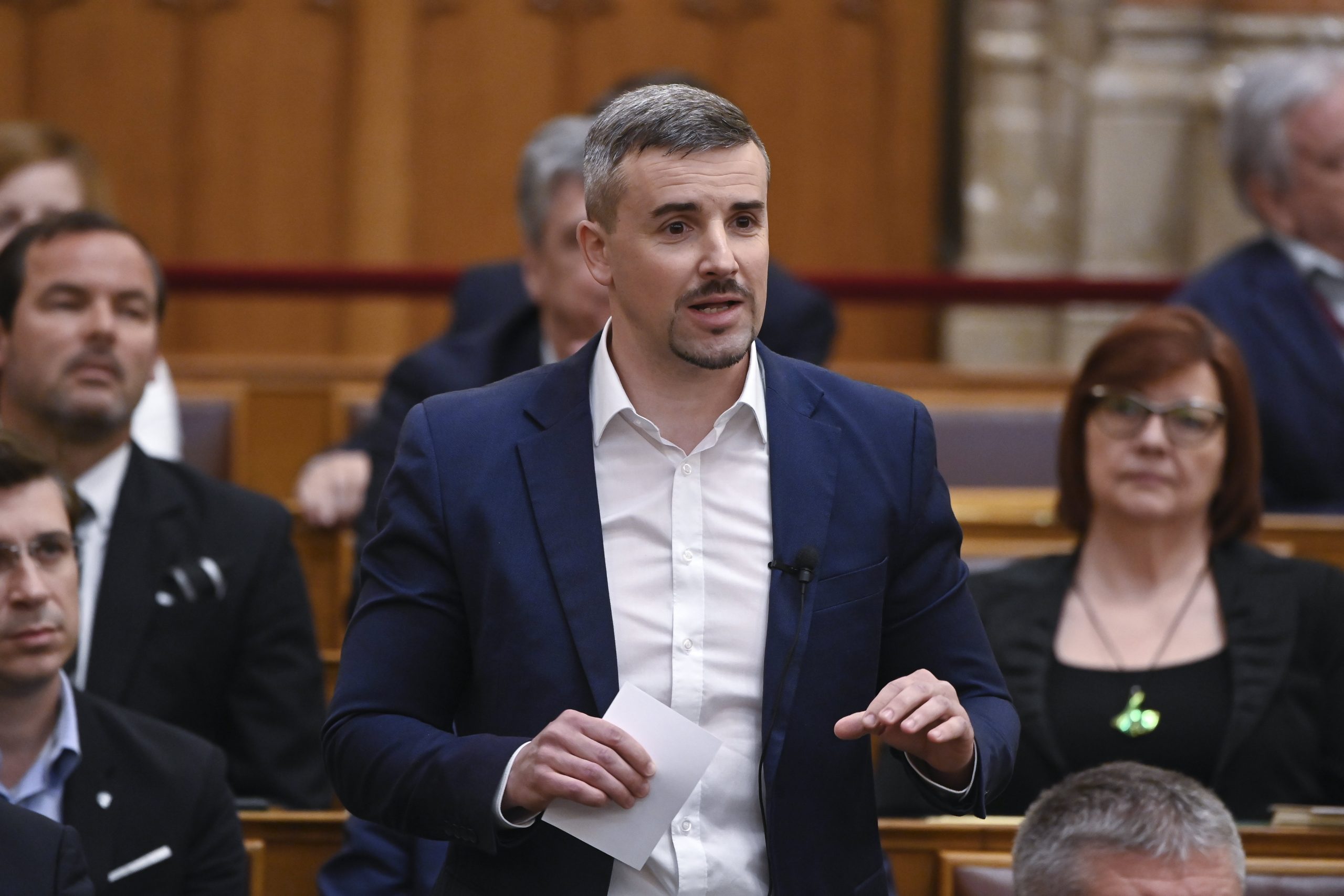
Márton Gyöngyösi, the newly-elected leader of Jobbik is not without scandals, as it was him in 2012 who urged the government to draw up lists of Jews who pose a “national security risk.”Continue reading

Péter Jakab, former party chairman and leader of the Jobbik Movement for Hungary, has announced his resignation from the party and its parliamentary group.
“I hereby resign from Jobbik, and as an independent MP I will remain on the side of the people just as I have always done: bluntly, scratchily, but always honestly. Jobbik can give up, I never will! Let the government fall, let the people win,” the politician said in a post published on his social media page Thursday evening.
He wrote that Márton Gyöngyösi, as Jobbik’s new chairman, had presented him with the choice in an open letter that “if I want to remain on the side of the people, if I want to continue to stand up for the losers of the crisis, the victims of the Orbán regime, with bluntness, honesty and scratchiness, then there is no place for me in Jobbik.”
“Well, Marci, then I have no place in Jobbik.
If I have to choose between the people and Jobbik, there’s no question which one I’ll choose,”
said Jakab.
The Jobbik Movement for Hungary noted the departure of Péter Jakab and his advisor “without surprise but with regret,” in a statement released Thursday evening.
Péter Jakab was first elected party leader by the Jobbik Congress in January 2020. Although he was re-elected in May this year, he resigned less than a month later, claiming that “the new leadership does not want to follow the path of the membership, they do not give me the majority to make the necessary decisions, and they have taken the leadership of Jobbik out of my hands.”
In order for the movement to continue to function, it needs a president with whom the bureau can work together. It cannot work with me, and I am therefore resigning as President of Jobbik as of today.
I will fight Fidesz any time, but I will not fight Jobbik,”
wrote Jakab in his statement.
At a subsequent election on July 2nd, Márton Gyöngyösi, the party’s only MEP, was elected as Jobbik’s leader. Gyöngyösi is not without his own scandals, as in 2012, he said that it was time to make a list of how many Jewish people there are in the parliament and in the Hungarian government who represent a national security threat to the country.
Jobbik has seen better days during its history. At first, the party started out as a national radical party and was seen as belonging to the far right of the political spectrum. During the 2010 general elections, Jobbik came third with 16 percent of the votes, thereby securing its first parliamentary seats. From 2014, the party started to redefine itself and soon became a “people’s party.” During Gábor Vona’s leadership between 2006 and 2018, they managed to gather a significant public following.
However, after Péter Jakab became the president of the party in 2020, things started to go downhill. Jobbik, which always identified with the right side of the political spectrum, started to shift closer to the political left. Eventually, during the 2022 general elections, they became a part of the coalition of the opposition parties – including the Hungarian Socialist Party and the Democratic Coalition led by Socialist ex-prime minister, Ferenc Gyurcsány.
After Fidesz’ landslide victory in 2022, Jobbik lost a huge part of its voters, while infighting also made things worse. As a result of these scandals, the party is now on the brink of breaking up.
Featured photo: MTI/Koszticsák Szilárd